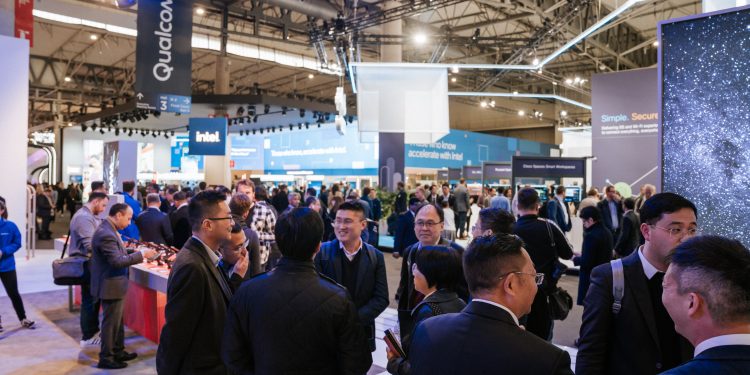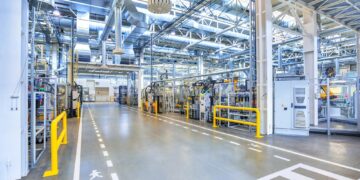The majestic city of Riyadh is set to become the epicenter of technological advancement with the upcoming Future Semiconductors Forum 2024. Organized by the prominent King Abdulaziz City for Science and Technology (KACST) in collaboration with King Abdullah University of Science and Technology (KAUST), this significant event is poised to take place on June 5-6, 2024, at the innovative Garage Innovation District in Riyadh. The primary aim is to champion the in-house production of electronic chips and thereby, stimulate the digital economy within the Kingdom of Saudi Arabia.
The forum will serve as a melting pot for esteemed government officials, industry leaders, renowned experts, and academics specializing in semiconductor technology. Stars of the sector such as Shuji Nakamura, a Nobel Prize-winning physicist celebrated for his work on LEDs and laser diodes, will attend. He’ll be joined by Kang Wang, a distinguished professor in electrical engineering and computer science, who is also a noted figure at UCLA and Raytheon Company, and Steven P. DenBaars of the University of California – Santa Barbara, a prolific inventor and entrepreneur in the field of photonics and electronics.
Other luminaries include Umesh Mishra, the Dean of the College of Engineering at UCSB, Ross Jatou, an industry executive, Dr. Naveed Sherwani, a leading figure in semiconductor innovation, and Professor Goutam Chattopadhyay, a respected scientist associated with NASA’s Jet Propulsion Laboratory and the California Institute of Technology.
Dr. Munir Eldesouki, head of KACST, conveyed that the forum is aligned with the vision and strategic priorities of HRH Prince Mohamed bin Salman, Crown Prince and Prime Minister, particularly in research, development, and innovation to propel the digital economy. KACST’s role as a hub for technological innovation focuses on enhancing the Kingdom’s research, development, and innovation ecosystems, fostering technological progress, and encouraging the localization of key technologies.
Dr. Tony Chan, President of KAUST, lauded the previous successes of the forum and highlighted the new edition as a promising avenue to boost the digital economy, foster research collaborations, and enable knowledge exchange on best practices in the electronic chip industry. He emphasized the unique opportunity for prominent local and international players to convene under one roof.
The forum also seeks to raise awareness about the vital role of localizing the electronic chip industry in the Kingdom’s economic growth. It aims to identify opportunities for localizing this essential industry, positioning the Kingdom as a significant player in the electronic chip sector and fostering research collaboration and sharing of best practices in semiconductor development and manufacturing.
Over the span of two days, the forum will cover a spectrum of topics to chart the semiconductor industry’s future in the Kingdom, examining the complete value chain from raw materials to finished microchips. It will also delve into the application of advanced technology in fields such as space exploration, quantum technologies, 6G communications, electric vehicles, and integrated sensors for smart cities.
Significant initiatives will be unveiled during the third edition of the forum, aimed at enhancing Saudi Arabia’s global semiconductor profile, driving regional transformation, nurturing talent within this crucial sector, and tackling industry challenges to fuel economic growth. The agenda includes an array of scientific activities like lectures, panel discussions, research posters, and an exhibition for global companies to present the latest in semiconductor development and manufacturing.
Strategic partners for this edition include the Research, Development, and Innovation Development Authority and Alat Company. Prominent sponsors include Ajlan & Brothers Holding, Synopsys, Siemens, Rapid Silicon, Oxford Instruments, Trysl Tech, Joule, EpicSemi, and International Semiconductor Executive Summits. The forum’s success in its first two editions has paved the way for collaborative research, advancements, and semiconductor manufacturing initiatives. One such outcome is the Saudi Semiconductors Program (SSP), an innovative regional project promoting research, development, and local talent in electronic chip design and manufacturing, in collaboration with 16 Saudi universities and over 400 trained researchers and students.









